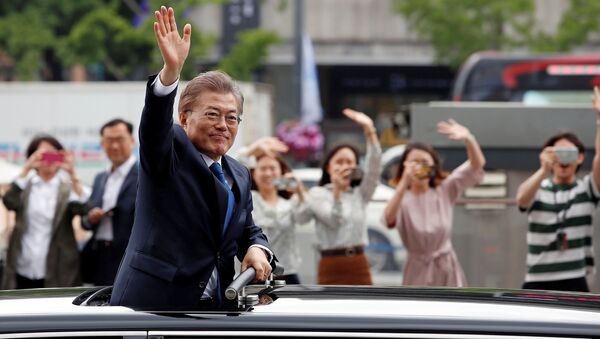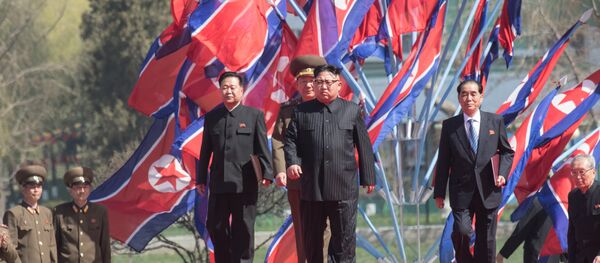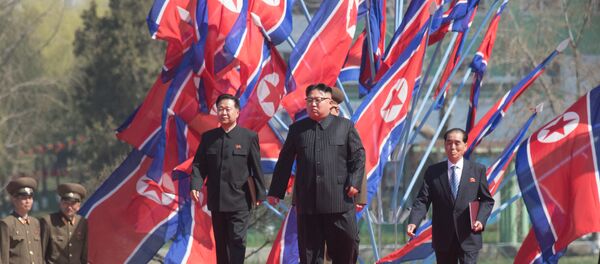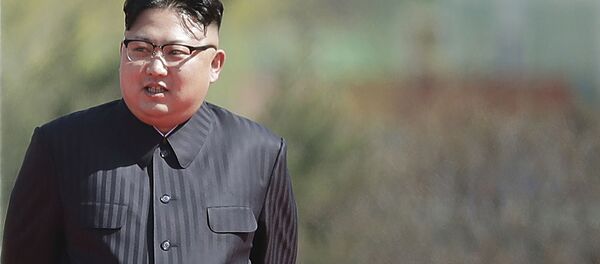MOSCOW (Sputnik) — Moscow expects progress in the settlement of the North Korean nuclear issue following the election of the new South Korean president, Moon Jae-in, Russia's Ambassador to Seoul Alexander Timonin said Thursday.
"In his statements, President Moon Jae-in has repeatedly stressed that his plans include the gradual normalization of relations with the DPRK," Timonin said in an interview with Rossiya 24 television channel.
"Positive changes will outline soon in the settlement of the Korean Peninsula's nuclear problem, since the president of the Republic of Korea, like the population of the country, is concerned about the situation, and the new president believes his priority task is to normalize the situation in Korea," he said.
On May 10, Moon Jae-in became the president of South Korea. He has said that Seoul wants to jointly denuclearize the Korean Peninsula together with Beijing.
"The leadership of the Republic of Korea, as before, views Russia as an influential actor, as a country which has much influence on the Korean peninsula, as one with friendly relations with North Korea and which has certain leverage with Pyongyang. In this regard, we hope that the new Korean leadership will intensify cooperation with our country in pursuit of peaceful ways to resolve the Korean issue," Timonin said.
The most recent missile test allegedly took place on April 29 from a site north of Pyongyang. Japan, South Korea and the United States said the test appeared to have failed as the missile broke-up within North Korean territory.
On May 3, Secretary of State Rex Tillerson said the United States is preparing to impose additional sanctions on North Korea if Pyongyang continues to pursue ballistic and nuclear weapons.
US media reported on mid-April that US President Donald Trump might order a strike against North Korea in light of its military activities. The North Korean top officials said the country was ready for nuclear attacks in case of possible US military aggression.
The crisis is aggravated by the deployment of the US THAAD air defense system in South Korea.
The THAAD system has a range of some 200 kilometers (125 miles) and is designed to intercept short, medium and intermediate ballistic missiles at the terminal incoming stage. The move to deploy it in South Korea has been criticized by neighboring China and Russia as inappropriate, possibly disproportionate, and affecting other countries' interests.





